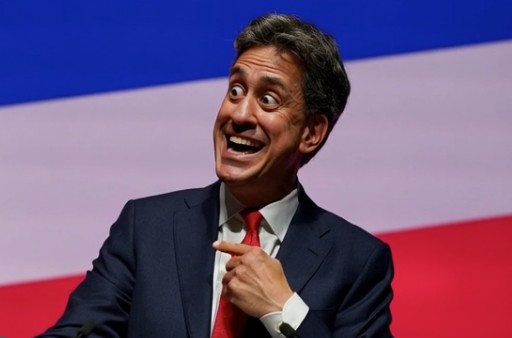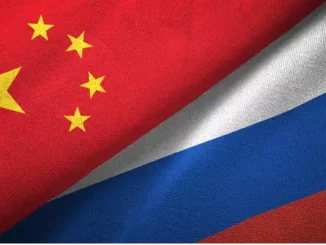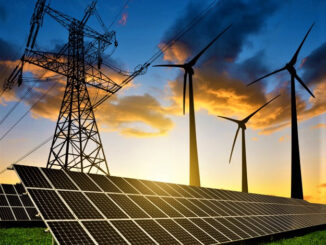
In a pointed op-ed published today in The Telegraph, energy analyst and former Shell executive Nick Butler delivers a sobering rebuke to the uncompromising zeal of environmental groups like Greenpeace. Titled “Greenpeace is wrong – we can’t have net zero at any price,” the piece praises UK Energy Secretary Ed Miliband’s dedication to decarbonization but warns that blind pursuit of net zero targets is fueling skyrocketing energy costs and economic pain for ordinary citizens.
Butler argues that while Miliband’s vision for a greener Britain is admirable, policies must balance ambition with affordability—lest they drive industries offshore and exacerbate global divisions. Greenpeace’s insistence on “net zero at any price,” he contends, ignores the harsh realities of energy markets, where high costs are already biting households and businesses. This isn’t just a UK problem; it’s a symptom of a broader failure in Western net zero dogma, as the world fractures into rival economic blocs: one shackled by green mandates and soaring prices, the other powered by pragmatic fossil fuels and rapid growth.
The irony is stark. Proponents of net zero, from activist lobbies to policymakers in London and Brussels, tout it as an inevitable moral imperative. Yet, as evidence mounts—from Britain’s winter energy squeezes to California’s rolling blackouts—these policies are not only failing to deliver affordable clean energy but are also accelerating a geopolitical realignment. The West’s rush to phase out fossil fuels is creating vulnerabilities that China, India, and the Global South are exploiting, forging new trade alliances that sideline “green” economies. It’s time to face facts: net zero absolutism is economically suicidal and geopolitically naive.
The UK’s Net Zero Gamble: Ambition Meets Austerity
The United Kingdom, once the cradle of the Industrial Revolution, now leads the pack in net zero fervor. In 2019, it became the first major economy to legislate a binding target of net zero emissions by 2050, enshrined in the Climate Change Act.
Under Ed Miliband’s Labour government, the push has intensified: mandatory reductions of 68% by 2030 and 81% by 2035, with billions poured into offshore wind, heat pumps, and electric vehicles.
The 2025 Spending Review allocated further funds for decarbonization, including subsidies for green hydrogen and grid upgrades.
But progress reports paint a grim picture. The Climate Change Committee’s June 2025 assessment to Parliament reveals sluggish advances in key sectors like buildings and transport, with emissions reductions stalling amid supply chain disruptions and ballooning costs.
Electricity prices have surged 15% year-over-year, and households face a “green levy” on bills that could add £200 annually by 2026. Miliband’s response? Double down, with plans to ban new gas boilers by 2035. As Butler notes in The Telegraph, this “strong commitment” risks pricing Britons out of warmth and mobility, handing a competitive edge to rivals unburdened by such constraints.
Europe’s Green Straitjacket: From Vision to Victimhood
Across the Channel, the European Union is doubling down on its own net zero odyssey. The bloc’s European Climate Law mandates a 55% emissions cut by 2030 en route to net zero by 2050, with a freshly proposed 90% reduction by 2040 to keep the dream alive.
The Net-Zero Industry Act aims to ramp up domestic manufacturing of clean tech, targeting 40% of EU deployment needs by 2030.
EU leaders, meeting in late October 2025, debated attaching economic safeguards to these goals, but the trajectory remains clear: aggressive carbon pricing, renewable mandates, and fossil fuel phase-outs.
The fallout? Germany’s industrial heartland is reeling from the Energiewende’s legacy—high energy costs that have idled factories and spurred deindustrialization. France’s nuclear woes, exacerbated by green regulations, have led to blackouts and import dependencies. Overall, EU wholesale gas prices remain 20% above pre-2022 levels, with the bloc’s 2025 agricultural policy overhaul adding bureaucratic burdens on farmers already protesting net zero’s toll.
As one Clean Air Task Force report warns, without “fit-for-purpose” regulations, Europe’s transition risks becoming a vision of virtue signaling over viability.
California’s Cautionary Tale: Policies That Punish the Poor
If the UK and EU are cautionary sketches, California is the full-blown horror story. The Golden State, a net zero pioneer with mandates for 100% clean electricity by 2045, has regulated itself into an energy crisis.
Aggressive caps on refineries and fossil fuels have slashed supply just as demand surges from EVs and data centers. Result? Gasoline averages $4.62 per gallon in June 2025—44% above the U.S. national average of $3.20—while diesel hovers at $5.50.
Electricity rates? A punishing 102% premium over the national average, at $0.28 per kWh, fueling “energy poverty” where low-income families spend 10% of income on utilities.
Refineries are closing at breakneck speed—13 remain, but more shutterings loom—threatening further spikes as imports from Asia grow costlier.
Recent legislation aims to stabilize prices through western energy market reforms and affordability credits, but critics call it too little, too late.
A mysterious “surcharge” on gasoline, confirmed by state officials in October 2025, only underscores the opacity of these failed policies.
California’s experiment proves: net zero without reliable baseload power doesn’t green the grid—it blacks it out and breaks the bank.
Do you live in California, New York, or New Jersey with high taxes? Or do you have a Tax Burden in 2025?
Global Reality Check: GDP Giants Sidestep the Green Trap
Zoom out, and the bifurcation becomes crystal clear. Among the world’s top 20 economies by nominal GDP in 2025—collectively driving 80% of global output—net zero commitments vary wildly, correlating more with ideology than economics.
Here’s a snapshot:
|
Rank
|
Country
|
Est. GDP 2025 (Trillions USD)
|
Net Zero Target
|
Key Notes
|
|---|---|---|---|---|
|
1
|
United States
|
30.34
|
Withdrawn federally (2025); 19 states committed by 2050
|
Post-election retreat covers 77% global GDP drop in commitments; states push renewables amid grid strains. zerotracker.net
|
|
2
|
China
|
19.53
|
2060
|
World’s top emitter prioritizes growth; coal expansion offsets green pledges. un.org
|
|
3
|
Germany
|
4.92
|
2045
|
EU leader in renewables, but deindustrialization from high costs.
|
|
4
|
Japan
|
4.39
|
2050
|
Nuclear revival tempers green shift; energy imports vulnerable.
|
|
5
|
India
|
4.19
|
2070
|
Rapid coal growth; net zero delayed for development. climateactiontracker.org
|
|
6
|
United Kingdom
|
~3.50
|
2050
|
As above; high household energy bills.
|
|
7
|
France
|
~3.20
|
2050
|
Nuclear-heavy; EU mandates strain budgets.
|
|
8
|
Italy
|
~2.40
|
2050
|
Gas-dependent; green taxes hike prices.
|
|
9
|
Canada
|
~2.30
|
2050
|
Oil exporter with net zero law; tensions with provinces. eciu.net
|
|
10
|
Brazil
|
~2.20
|
2050
|
Amazon focus, but agribusiness resists.
|
|
11
|
Russia
|
~2.10
|
None strict
|
Fossil fuel giant; exports to Asia boom.
|
|
12
|
South Korea
|
~1.90
|
2050
|
Tech-driven green push, but coal lingers.
|
|
13
|
Australia
|
~1.80
|
2050
|
Mining powerhouse; net zero law enacted. congress.gov
|
|
14
|
Mexico
|
~1.70
|
2050 (pledged)
|
Oil reliance; slow implementation.
|
|
15
|
Spain
|
~1.60
|
2050
|
Solar leader, but import costs rise. congress.gov
|
|
16
|
Indonesia
|
~1.50
|
2060
|
Coal-heavy; delayed for growth.
|
|
17
|
Netherlands
|
~1.20
|
2050
|
Gas transition pains.
|
|
18
|
Turkey
|
~1.10
|
None
|
Coal and gas expansion.
|
|
19
|
Saudi Arabia
|
~1.10
|
2060
|
Oil kingdom’s Vision 2030 pivot.
|
|
20
|
Switzerland
|
~1.00
|
2050
|
Wealthy but energy-poor.
|
Sources: GDP estimates from IMF projections via StatisticsTimes and FBS; net zero targets from Net Zero Tracker and Climate Action Tracker.
The pattern? The top five GDP powerhouses—US, China, Germany, Japan, India—account for over 60% of global output. Yet only two (Germany, Japan) are fully aligned with 2050 net zero; the US has backpedaled federally, China and India eye 2060-2070 horizons to safeguard growth.
Russia, Indonesia, and Saudi Arabia, key energy suppliers, show little enthusiasm for strict timelines. Meanwhile, net zero zealots like the UK and EU grapple with stagnant growth (EU GDP up just 1.2% in 2025 forecasts) while China and India surge at 5%+ annually, building coal plants and striking fossil fuel deals.
This isn’t coincidence—it’s calculation. Emerging giants are prioritizing prosperity over Paris pledges, leaving the West to foot the bill for global emissions.
The Great Bifurcation: Green Blocs vs. Growth Blocs
Net zero’s true casualty isn’t the climate—it’s Western cohesion. As the U.S. retreats and Europe frays, new trading blocs emerge. BRICS+ (Brazil, Russia, India, China, South Africa, plus newcomers like Saudi Arabia) now spans 45% of global population and 35% of GDP, inking energy pacts that bypass green sanctions.
China’s Belt and Road funnels $1 trillion into fossil infrastructure across Asia and Africa, while India’s coal imports hit records in 2025.The West? A shrinking “green alliance” of the US (selectively), EU, UK, Japan, and Canada—high on rhetoric, low on leverage. California’s woes exemplify the trap: policies that export emissions (via refinery closures) and jobs (to cheaper Asian manufacturers). Globally, 137 countries have pledged net zero by 2050, covering 90% of emissions on paper—but enforcement lags in the very nations driving growth.
Greenpeace and its net zero acolytes decry this as betrayal. But as Butler aptly puts it, “we can’t have net zero at any price.”
The world isn’t converging on carbon neutrality—it’s diverging into winners who power progress and losers who pay premiums. For Energy News Beat viewers, the message is clear: demand realism from leaders, or watch your energy security—and economy—bifurcate away.
This article draws on real-time data and analysis to challenge the net zero narrative. For deeper dives, check Energy News Beat’s coverage of global energy markets.
Got Questions on investing in oil and gas? Or do you have a Tax Burden in 2025?
Crude Oil, LNG, Jet Fuel price quote
ENB Top News
ENB
Energy Dashboard
ENB Podcast
ENB Substack






